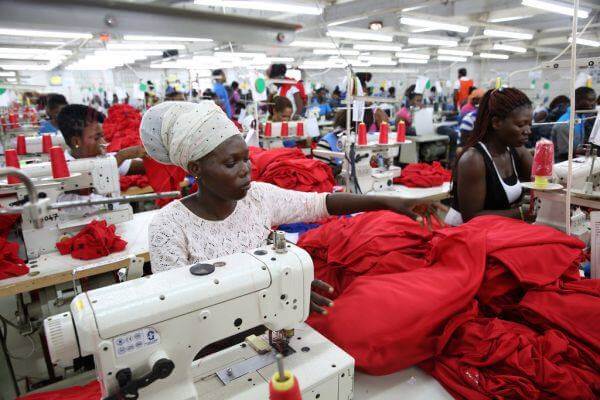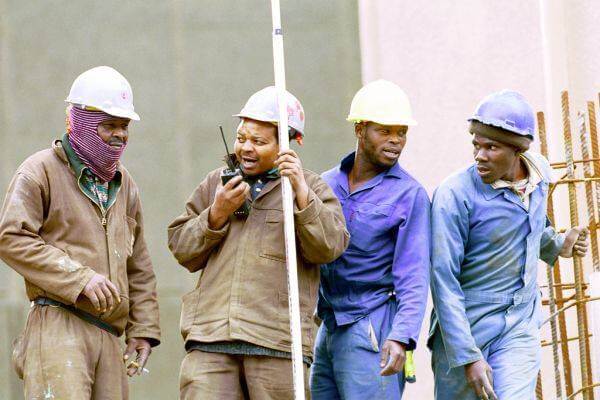
Chinese investments in Africa in the 2000s: a new colonialism?
During the last Forum on China-Africa Cooperation (FOCAC), held in 2015 in Johannesburg, the Chinese President Xi Jinping pledged to provide a $60 billion funding for development projects in Africa over the following three years. The announcement was not unexpected. Since the FOCAC process began in 2000, with a summit held every three years, Chinese leaders have been constantly increasing the amount of loans and financial aid offered to African countries. According to figures cited at the Wharton Africa Business Forum held in autumn 2015, China’s investment in the continent has skyrocketed in recent years, increasing from $7 billion in 2008 to $26 billion in 2013. Xi claims that China aims to build a win-win relationship with Africa, by developing infrastructure, improving agriculture and reducing poverty in the continent.
The relationship is, however, fraught with controversy. Some accuse China of behaving like a neo-colonialist power, financing African infrastructure projects only to extract natural resources such as oil, iron, copper and zinc from the continent. If access to natural resources is undoubtedly a significant advantage for Chinese companies, which have been in some cases as exploitative as Western powers before them, this is far from being the whole story. According to a 2015 paper written by Chen Wenjie, an economist in the African Department of the International Monetary Fund (IMF), in collaboration with other researchers, the top 20 African nations China does business with include not only those notoriously rich in raw materials – such as Nigeria and South Africa – but also Ethiopia, Kenya and Uganda, all commodity-poor nations. Despite constituting only a small part of Chinese investments in Africa, the deals that do involve infrastructure projects and natural resources tend to be large and widely publicised, hitting the headlines and creating fertile ground for accusations of exploitative behaviour. Contrary to common perceptions, most Chinese projects in the continent are centred on services in the areas of business, import-export, retail, restaurants and hotels. Aside from the government-led, natural-resources-based big investments, most Chinese endeavours in Africa are more modest, and carried out by small or medium-sized private firms whose activities have nothing to do with commodities. For example, in the case of Ethiopia, the relationship between countries has been built on trade, investments in infrastructure and manufacturing.

In many cases, Chinese companies have contributed to local development in Africa. If it’s true that in the early 2000s firms employed a high number of Chinese nationals, now the vast majority of their employees are local inhabitants. One of the main reasons Chinese companies invest in Africa is in fact that, with rising labour costs in China, African labour markets are more affordable for investors. Besides, most contracts currently require a minimum number of African workers to be employed in each project. Some companies have also made very large investments in employee-training: the most notorious example is that of the Chinese telecommunication firm Huawei, which in the early 2000s established a training school in Nigeria which helped develop the skills of a great number of local engineers.
There are therefore many myths surrounding Chinese engagement in Africa that both the Western press and politicians are playing a big role into spreading. This, however, doesn’t mean that the relationship between Africa and China is a bed of roses. Many experts point out that, although China’s involvement with Africa has largely been beneficial to the continent, the economies of some of its countries have become too dependent on the Asian power. Instead of taking advantage of the situation by attempting to set up their own industry and move to an early industrial phase, they keep relying on the extraction of raw materials to be exported to China: this is for example the case with copper in Zambia. This dependency makes African economies extremely vulnerable, in particular now that China’s growth has remarkably slowed down. Conversely, other countries, such as Ethiopia, Ghana and Rwanda, have set off in the right direction and made big efforts to build an industrial base.

What’s more, African countries aren’t the only ones struggling in the relationship: there is in fact growing evidence that some of the Chinese firms leaping into Africa have had to deal with the same problems previously faced by Western investors. Chinese firms often expect that business in Africa will work in the same way it does in their own country: a company makes arrangements with the local government and the government delivers. Once they get to their target country, however, they realise that governmental promises to build infrastructure, provide power or supply land are not as reliable as they thought. The land may turn out to be used by local people who have farmed it for generations and local politicians do not always feel bound to respect deals struck by national authorities.
This is part of the reason why many of the much advertised big Chinese governmental projects in Africa have never become a reality: this was the case of the Lake Victoria Free Trade Zone Eco-city project. In 2008, a Beijing-backed partnership between a large Chinese firm and Ugandan investors announced the building of a 500 square kilometres eco-city in one of the poorest areas of Uganda. The project, which involved a solar-powered airport, was never built (which is incidentally a frequent outcome for most eco-city projects in China too).
Chinese involvement in Africa is much more complex than a resource-exploiting colonialist-like behaviour and in most cases has made a real difference in the development of African countries. Yet, there are still many problems to be solved and the slowing pace of China’s growth raises doubts on the future of the relationship. It’s up to both African countries and China to dissipate these doubts and enable their cooperation to evolve for their mutual benefit.
Cover Image: President Jacob Zuma, Chinese President Xi Jinping and Zimbabwean President Robert Mugabe cut the ribbon to mark the opening of the Johannesburg Summit of the Forum on China -Africa Cooperation (FOCAC), 4 Dec 2015. (GovernmenZA, Flickr). / License CC BY-ND 2.0
2000, 2001, Africa, china, Colonialism, featured, FOCAC, Investment